Glass levy dampens producers' spirits
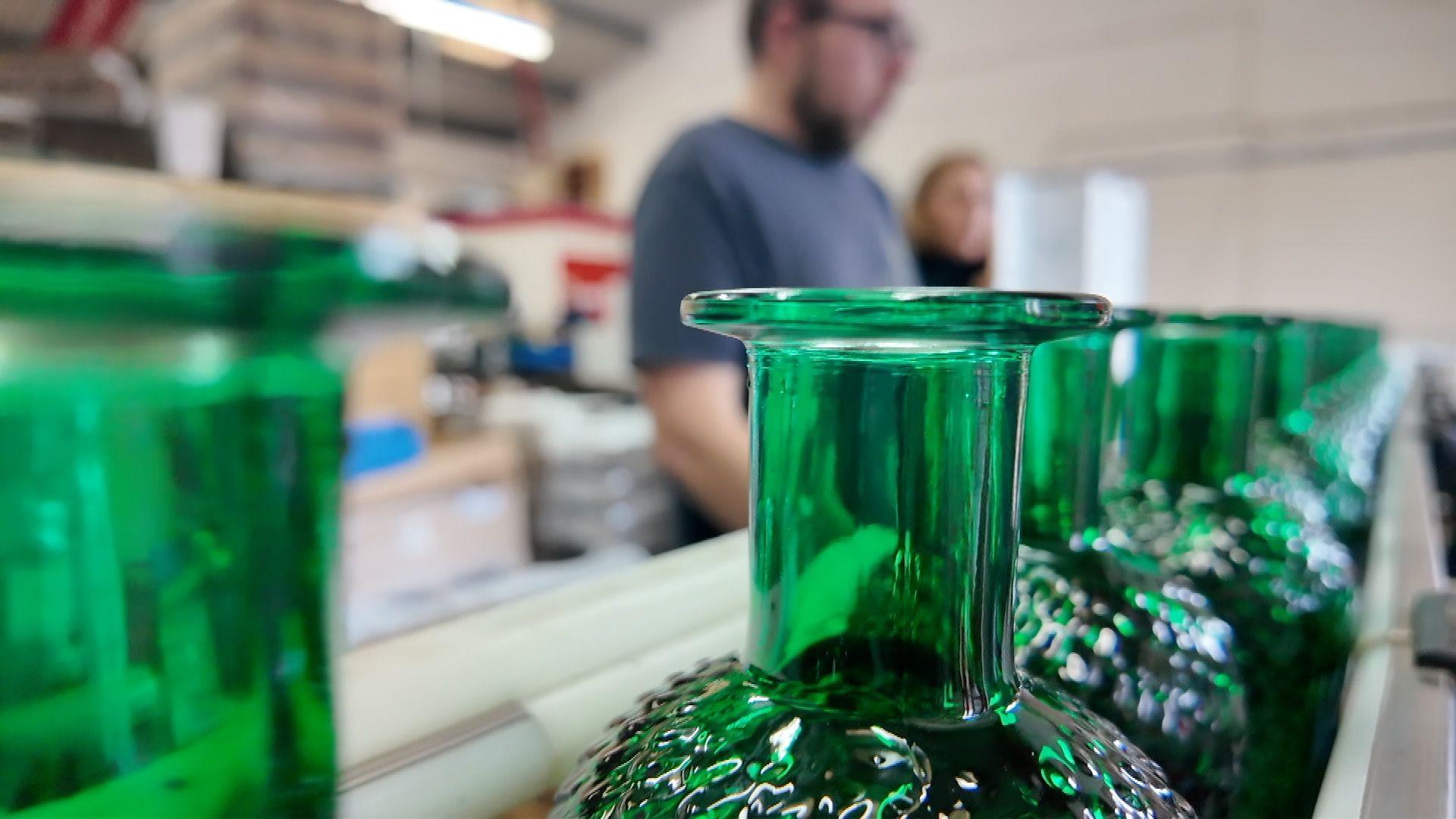
Manufacturers will now have to contribute to the cost of recycling and dealing with waste created through production
- Published
Companies using glass bottles and jars are facing bills of tens of thousands of pounds under a scheme aimed to reduce waste.
The first invoices under the Extended Packaging Responsibility (EPR) scheme are being issued this month.
Based on weight the charges have left some drinks manufacturers in the South claiming it would be cheaper to use plastic instead of glass.
The Department for Environment Food and Rural Affairs, Defra, says the scheme will generate more than £1 billion annually for councils to improve recycling collections.
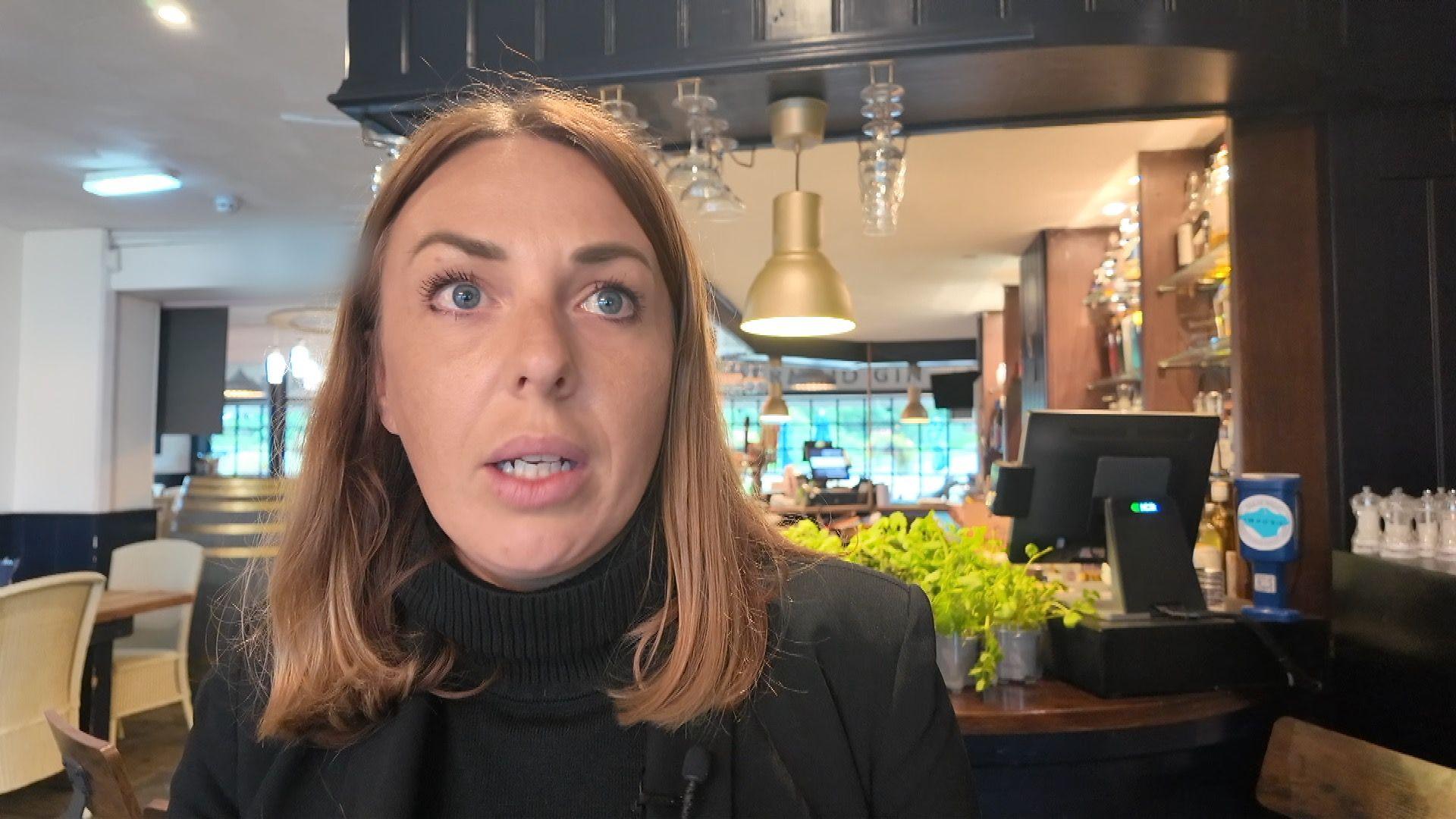
Charity Parker from the Isle of Wight Distillery says its disappointing to be facing an invoice of around £80,000 for EPR
The Isle of Wight Distillery produces around 500,000 bottles of Mermaid Gin every year.
Its distinctive textured glass bottles are the most popular bottle to be resold on a major internet auction site, according to the company.
The empty bottles are often upcycled into lamps, decanters and glasses.
"It's really disappointing in our industry" says Charity Parker, Compliance and Sustainability Manager at the Isle of Wight Distillery.
"We have created glass bottles to be reused and to go back into the circular economy. It's going to cost us about £80,000 a year."
"It would actually be cheaper to put our liquid into plastic bottles so it's incredibly disappointing."
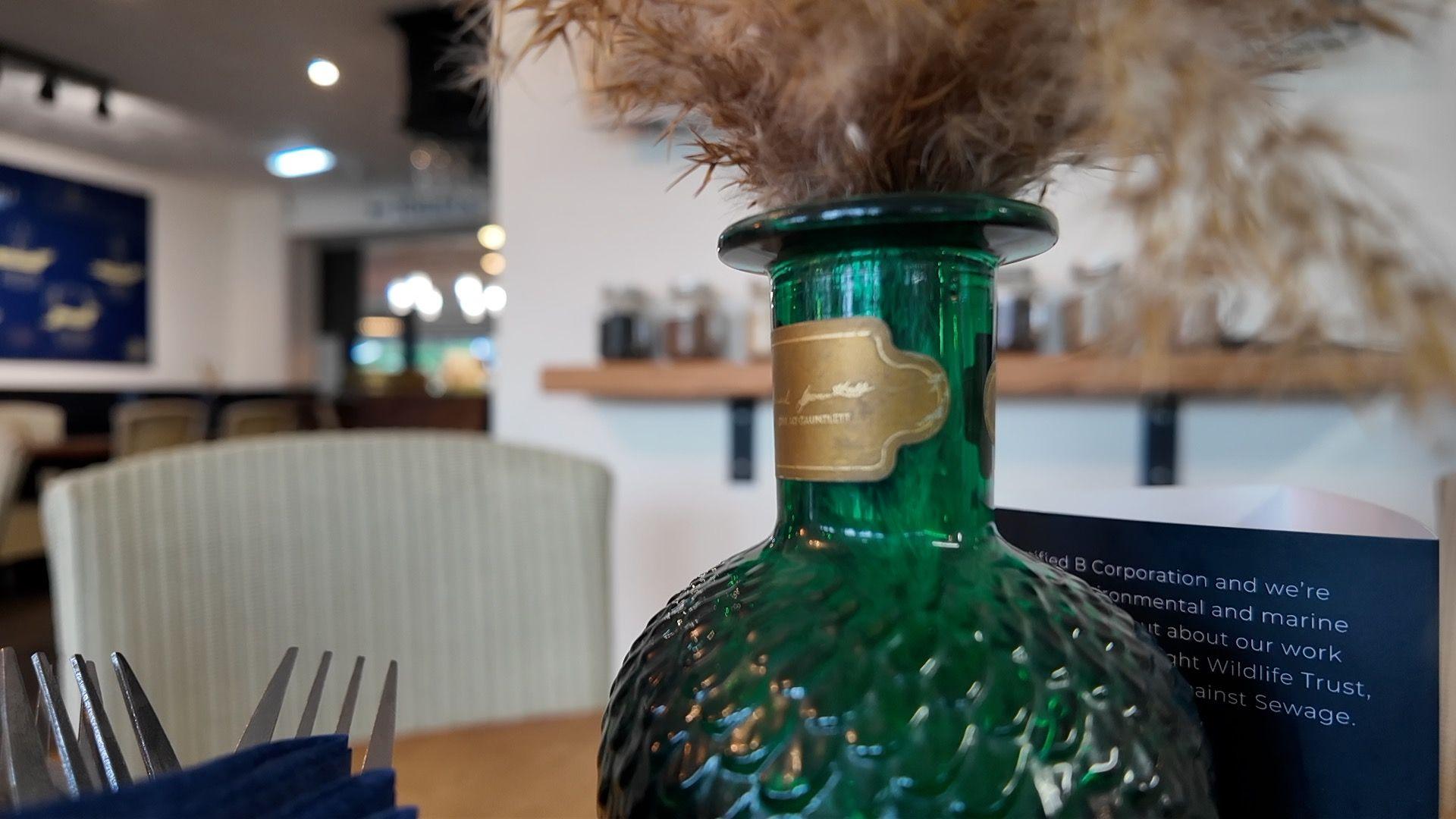
Mermaid Gin's empty bottles are popular on auction websites where they are sold for upcycling projects
It is a view echoed by the Wine and Spirits Trade Association which says the drinks industry is being disproportionately affected by EPR.
"At £192 per tonne the cost for glass is roughly 8 times higher than other European schemes aiming to do aeffectively the same thing" according to Chief Executive of the WSTA, Miles Beale.
"We think it shouldn't necessarily be about weight and you want to avoid encouraging packaging being in other materials that are less recyclable."
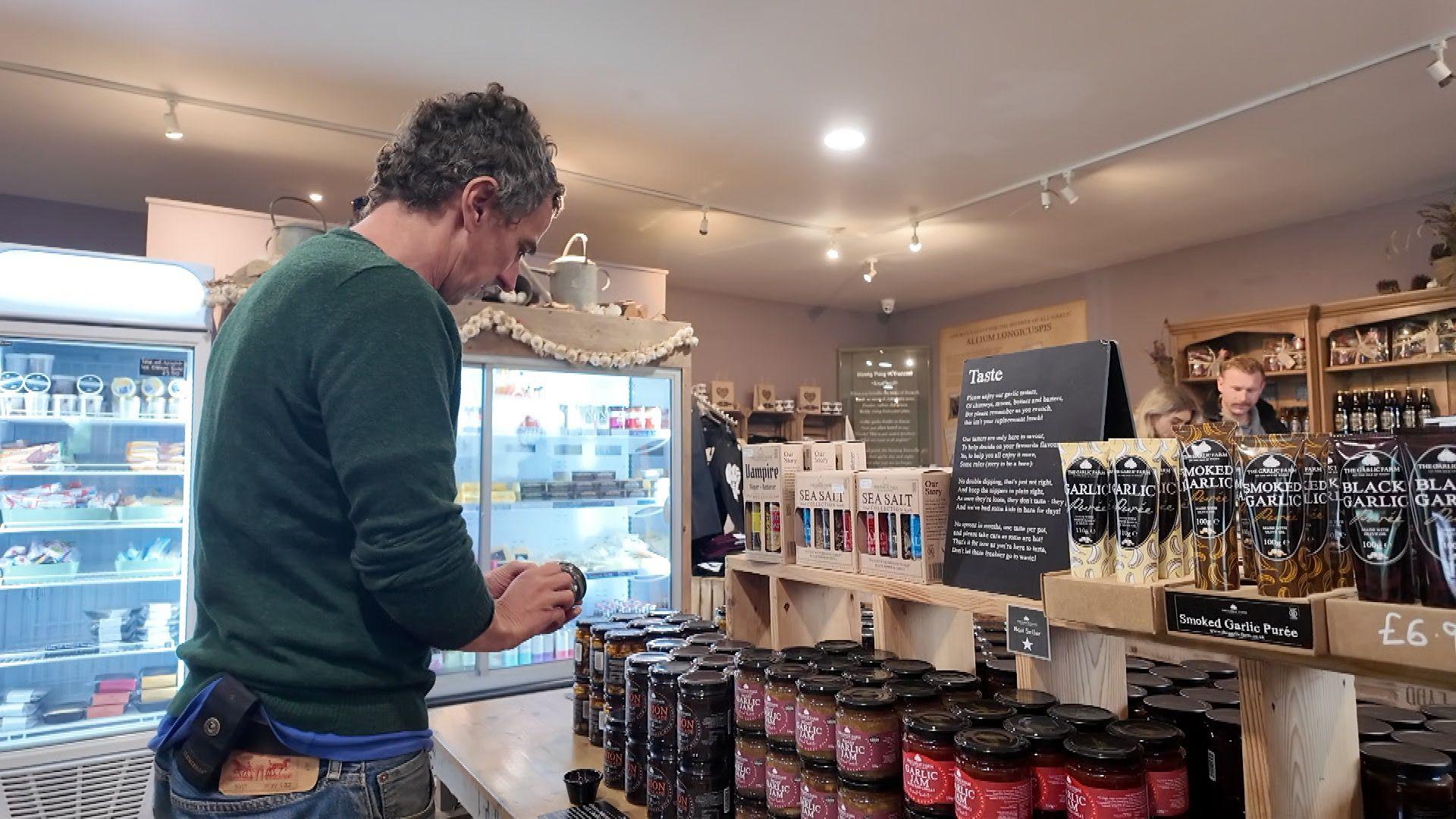
Companies with products sold in jars will also be affected by the cost of using glass through the new scheme
Back on the island The Garlic Farm at Newchurch sells many of its products in glass jars and bottles.
As the EPR invoices begin to be sent out Barnes Edwards, Director and co-owner of The Garlic Farm is bracing for a five-figure bill.
"It seems sensible that we entertain something where if there's greater impact negatively then that carries a higher tax.
"I think the question marks that are out there are what is the difference between a single use plastic and a piece of equivalent glass packaging.
"And especially what is the difference when either one of those is or isn't recycled. So there are questions - for me as yet unanswered."
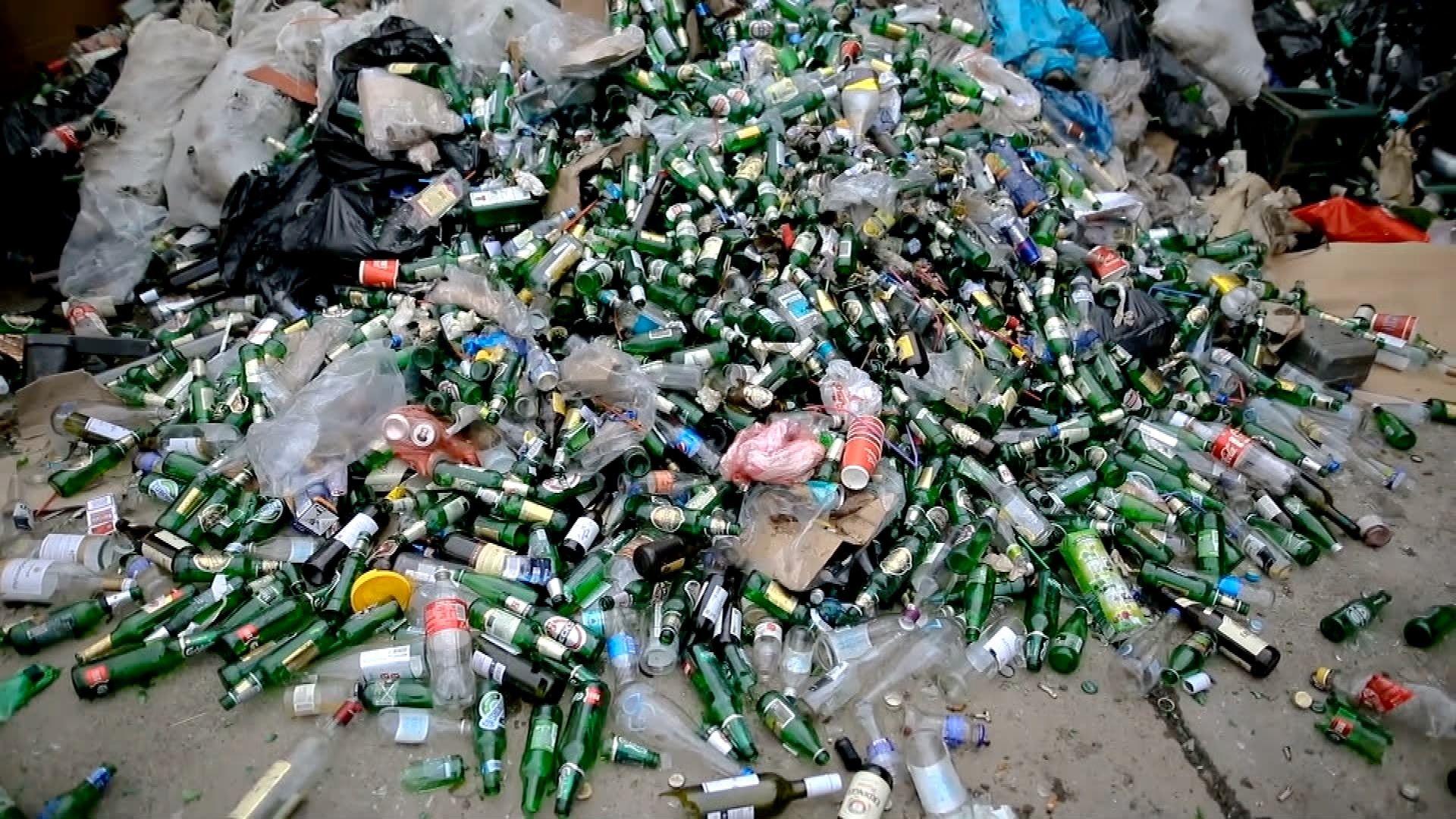
Defra says Extended Producer Responsibility moves the cost of dealing with waste away from taxpayers
According to Defra the EPR scheme is a critical step towards the creation of a circular economy.
"Extended Producer Responsibility moves the cost of dealing with waste away from taxpayers, generates over a £1 billion annually that must be spent by councils to improve recycling collections and thereby benefit every household across England."
"The changes underpin major investment in the UK economy, helping create 25,000 jobs and we will continue to listen and work with trade and industry bodies as they are implemented."
But for some of the South's drinks producers another bill for thousands off the back of National Insurance increases is proving difficult to swallow.
For Barnes Edwards from the Garlic Farm however uncomfortable he feels it is a step in the right direction.
"If you're a business that attempts to do better - you will. You'll find ways to win and you'll take your customers with you on that journey."
Get in touch
Do you have a story BBC Hampshire & Isle of Wight should cover?
You can follow BBC Hampshire & Isle of Wight on Facebook, external, X (Twitter), external, or Instagram, external.